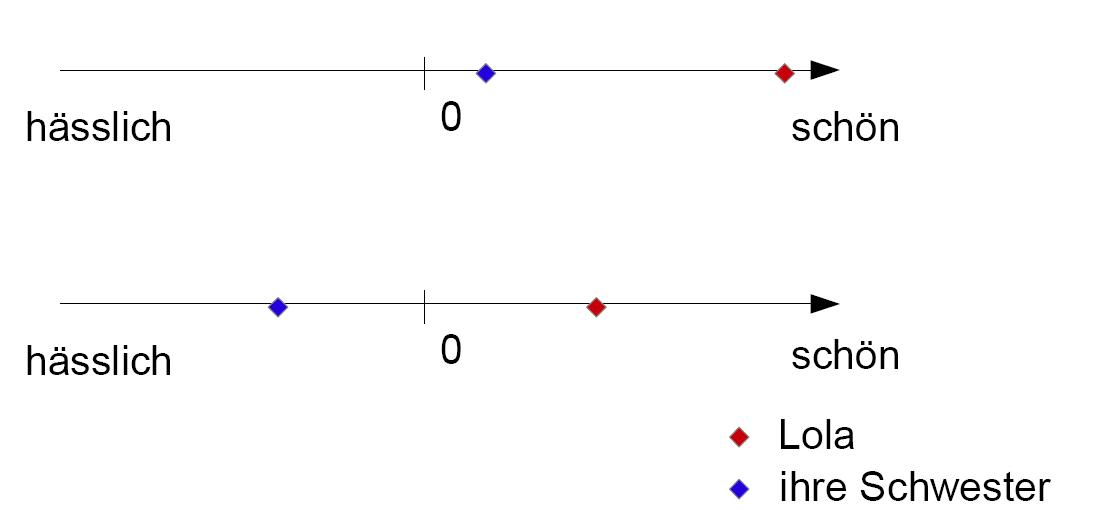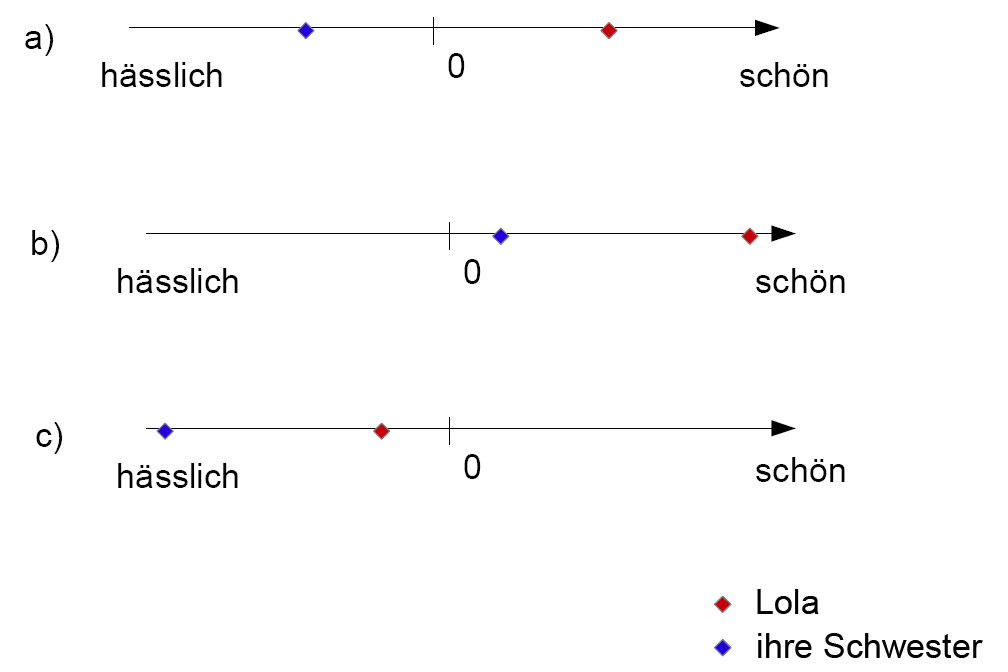Consider the phrase
Auf Schach bezogen bin ich schlechter als dieser Kumpel.
Does saying this imply that we both are schlechte Spieler, but that that guy is even worse? That is, if I use the comparative of an adjective, do the objects posses the quality that the adjective describe?
A last example. Is saying
Lola ist schöner als ihre Schwester.
the same as the following?
Die Schwester Lolas ist hässlicher als sie.
In the picture below, I try to express this idea.  There, the speaker has a (oversimplified) criterion to decide what is schön, what is hässlich. Are those sentences equally appropriated for both lines?
There, the speaker has a (oversimplified) criterion to decide what is schön, what is hässlich. Are those sentences equally appropriated for both lines?
Remark: I don't think the question might make sense for everybody. There are languages, however, presenting this feature. You say "is more beautiful than..." and it implies that both objects you compare are sometimes considered beautiful, not only that you consider one of them more beautiful than the other. In some sociological contexts it is so in Spanish, for instance. If you say there Mi amiga es más inteligente que tú, that means that both mi amiga and tú are considered intelligent.
Edit 1: Thanks to the comments of Em1, now I know that the tag "sociolinguistics" in this question, wasn't enough to express the true spirit of my question. It's not about the logical aspects in comparing objects (logic is not the only aspect involved in languages), but about how is sometimes this comparison perceived.
Edit 2: Again due to the comments of Em1, I have to clear things up. I never have spoken about a lack of possibility to compare things neutrally. The core part of the post, although it wasn't inlcuded in the first version, are the last questions. (Spanish is my mother tongue, so I know that when you compare persons, you have to be subtle with the choice of the adjectives). It's aimed to avoid me social problems by using comparation in German. Last, but not least, see the question of Em1 in Spanish.SE — an utterly interesting argument!


